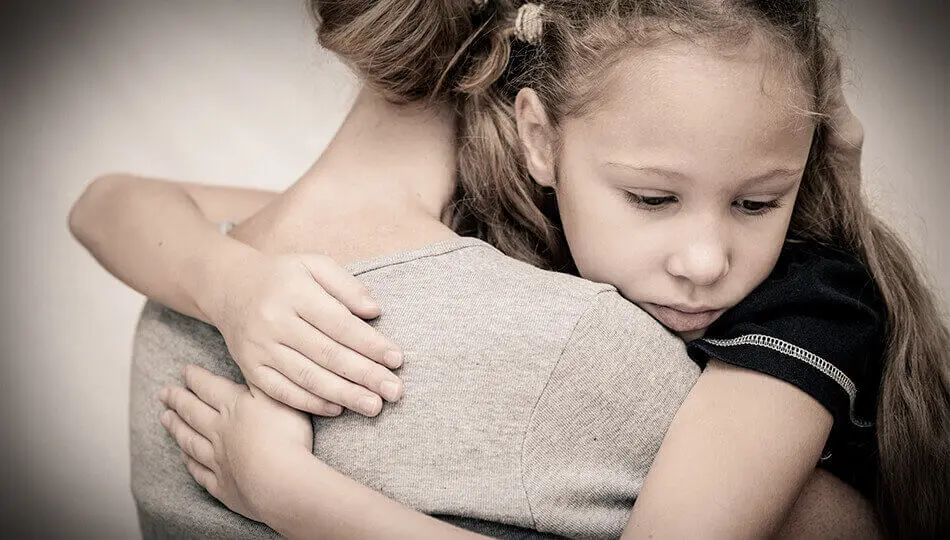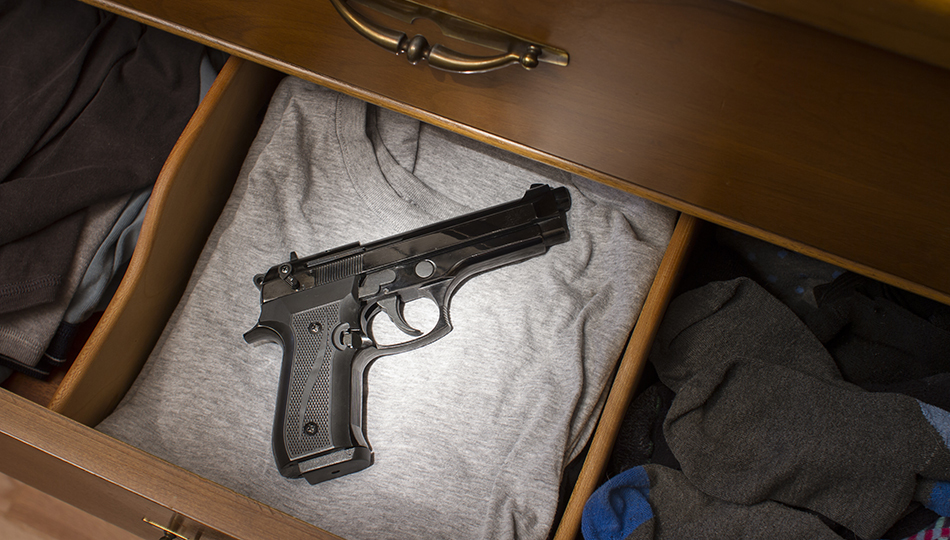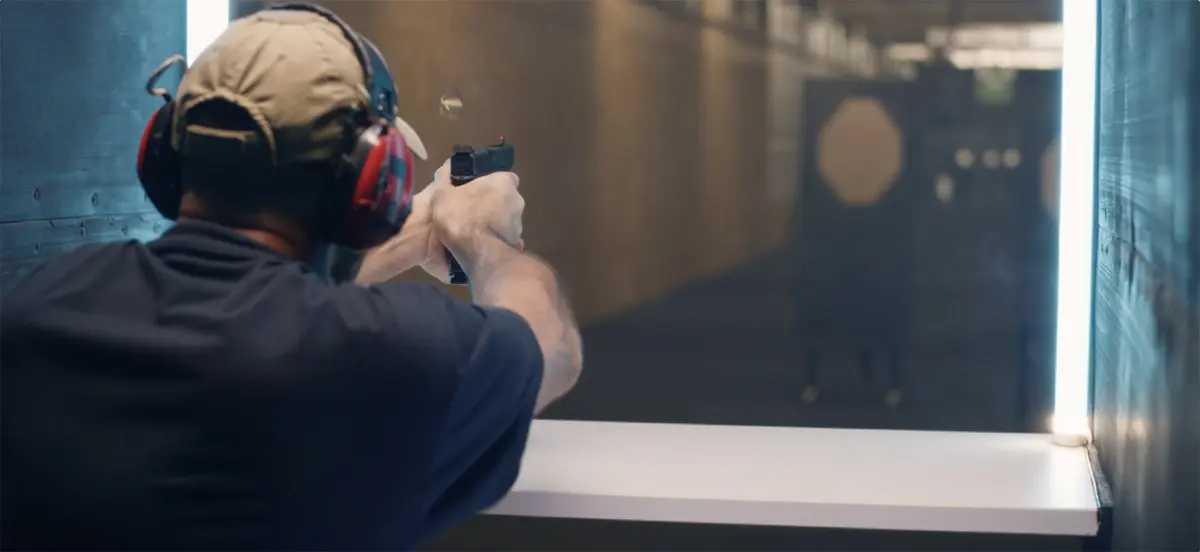
A common question among survivors of family violence is “Can you buy a gun if convicted of domestic violence?” It’s understandable to wonder if a person who was convicted of domestic violence will be allowed to purchase a firearm. And while the short answer is generally “no,” the specific laws and potential enforcement—or lack thereof—tend to vary by state.
What Is Domestic Violence?
From a non-legal perspective, domestic violence refers to abuse that takes place in an intimate relationship. According to the National Coalition Against Domestic Violence,
Domestic violence is the willful intimidation, physical assault, battery, sexual assault, and/or other abusive behavior as part of a systematic pattern of power and control perpetrated by one intimate partner against another. It includes physical violence, sexual violence, psychological violence, and emotional abuse. The frequency and severity of domestic violence can vary dramatically; however, the one constant component of domestic violence is one partner’s consistent efforts to maintain power and control over the other.
Legally, domestic violence refers to felony or misdemeanor crimes involving violence committed by the victim’s family member. Typically, “family” is defined as two people who have or have had a dating relationship, members of the same family, or are members of the same household, but the exact definition varies on a state-by-state basis.
Does Someone Convicted of Domestic Violence Have to Turn Their Guns In?
Once convicted, the person generally must “dispossess” themselves of firearms. While this does not generally require someone to turn the firearms over to the police/state, it often takes the shape of a sale or gift of all firearms to another. It’s important to note that many states don’t have a solid methodology in place for this process. That means a lot of domestic abusers unlawfully keep the guns already in their possession and nothing is done about it.
Enjoying this content? Find out how you can get more sent straight to your inbox.
Can Someone Convicted of Domestic Violence Own a Gun?
Generally, not under federal law. Under the Domestic Violence Offender Gun Ban of 1996, which was an amendment to the Gun Control Act of 1968, people convicted of misdemeanor domestic violence are prohibited from possessing firearms. The amendment is also known as the Lautenberg Amendment and makes it a felony for someone convicted of such crime to possess, ship, or transport guns or ammunition in interstate commerce. The amendment has no expiration date, and receiving relief from the restrictions imposed is a rare occurrence. This ban includes related crimes as the Gun Control Act defines “misdemeanor crime of domestic violence” as any state or federal misdemeanors that have:
as an element, the use or attempted use of physical force, or the threatened use of a deadly weapon, committed by a current or former spouse, parent, or guardian of the victim, by a person with whom the victim shares a child in common, by a person who is cohabiting with or has cohabited with the victim as a spouse, parent, or guardian, or by a person similarly situated to a spouse, parent, or guardian of the victim.
Does a Restraining Order Stop Someone from Owning Guns?
Generally, yes. Federal law criminalizes the possession of firearms by persons under an order that: restrains them from “harassing,” “stalking,” “threatening,” or placing in “reasonable fear of bodily injury”; includes a finding that the person represents a credible threat; or “prohibits the use, attempted use, or threatened use of force” against an intimate partner or child of such person. The person must receive notice and an opportunity to participate in the hearing on the order. Many states also criminalize the possession of firearms while under a restraining order. In practice, this means virtually everyone under an active restraining order has (at least temporarily) lost their right to possess firearms.
Does U.S. LawShield® Cover Self-Defense Related to Domestic Violence?
Yes. U.S. LawShield® provides Legal Defense for Self Defense® for any legal weapon used in self-defense scenarios, including lawfully defending yourself from an attack involving domestic violence.
Can My Abuser Have Guns?
We’ve answered these questions from a legal perspective regarding convictions, and restraining orders, but there are other things to consider. For example, it’s vital to keep in mind that people willing to engage in criminal acts are often also okay with breaking the law when it comes to possessing a firearm. Just because a person is legally barred from having a gun doesn’t mean they don’t have one—it simply means it’s against the law for them to have it.
People who are comfortable with criminal behaviors frequently continue those behaviors in other ways. Please remember, when seconds count, the police are minutes away. Being able to legally defend your life is important. If you are in an unsafe place and need help, you can call 1-800-799-7233 to speak to someone at the National Domestic Violence Hotline. Their website can be found at thehotline.org. If you are concerned about their website appearing in your browser history, consider using a computer at your local library or some other location away from your house. If you can’t leave your home, private mode on your personal computer is another option.
U.S. LawShield® provides Legal Defense for Self Defense®. Membership includes the ability to speak directly with an Independent Program Attorney and ask questions regarding self-defense legal matters and firearms. If you’re not yet a member, click here to take a closer look at the benefits. You may also call us at 877-448-6839.
Your Protection Starts Here!
Become a part of the nation’s best Legal Defense for Self Defense® Program and get armed, educated, and prepared today.
Domestic Violence and Gun Ownership FAQs
The information provided in this publication is intended to provide general information to individuals and is not legal advice. The information included in this publication may not be quoted or referred to in any other publication without the prior written consent of U.S. LawShield, to be given or withheld at our discretion. The information is not a substitute for, and does not replace the advice or representation of a licensed attorney. We strive to ensure the information included in this publication is accurate and current, however, no claim is made to the accuracy of the information and we are not responsible for any consequences that may result from the use of information in this publication. The use of this publication does not create an attorney-client relationship between U.S. LawShield, any independent program attorney, and any individual.





Leave A Comment